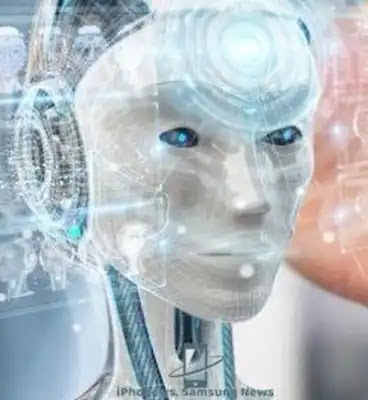Artificial general intelligence | Ai technology
Artificial Intelligence
It defines artificial intelligence by acronym (AI), which refers to the programming of machines so that they can simulate human intelligence so that they can think like humans and mimic their actions.
It calls each machine capable of displaying learning and problem-solving characteristics similar to the human mind. Artificial intelligence is also characterized by its ability to choose the best actions to achieve a particular goal with the best possible opportunity, and it also possesses a machine-learning feature.
Text, images, or video, and then automatically adapt to this data without human help, it should be noted that the term artificial intelligence was first used in the mid-1950s by researcher John McCarthy at Stanford University.
History of artificial intelligence
The stages of artificial intelligence are:
- The idea of inventing rigid things that resembled intelligent organisms began a long time ago, as ancient Greeks had myths about robots, and Chinese and Egyptian engineers built robots.
- Classical philosophers have described human thinking as similar to the symbolic system, hence the idea of artificial intelligence.
- In 1956, during a Dartmouth College symposium in Hanover, the phrase "artificial intelligence" was coined.
- Interest in the field of artificial intelligence declined and the proportion of government funding declined between 1974 and 1980, owing to the emergence of many reports criticizing progress in this area, called the Artificial Intelligence Winter.
- The British Government began funding the field of artificial intelligence in the 1980s and again moved forward to compete with the efforts of the Japanese.
- In 1987-1993, the winter period in this area was reversed by a further decline in government funding and a collapse in the computer market.
- The Deb Blue chess computer and the IBM manufacturer beat Russian chess champion, Gary Kasparov, in 1997, and the field began to rebound again.
- Watson won the title in 2011 at the Jeopardy competition.
- The Eugene Gustman computer program was able to test Turtg to deceive the rulers and make them believe that he was a real human being, and the Turing test was a competition to assess whether or not the machine was intelligent, developed in 1950 by the British mathematician and computer scientist Alan Turing.
- Many experts thought that the Turing test was not an accurate measure of artificial intelligence, so some thought about developing an updated version of it.
- The field of artificial intelligence has become an area that is not only concerned with the invention of the machine that mimics human intelligence but is even larger.
The Importance of Artificial Intelligence
The importance of artificial intelligence lies in its ability to add value to many sectors around the world, and also gives companies a major competitive advantage.
- Health care: Artificial intelligence is used in health care in areas without an advanced health care system, where through AI-based applications potential epidemics are identified early, diagnosed through imaging, and treated.
- Agriculture: Artificial intelligence addresses the challenges facing agriculture from excessive use of pesticides, fertilizers, and fungicides, the unpredictability of demand for products and the lack of adequate irrigation by cultivators, improving crop production through their ability to detect pests, predict crop prices, and provide timely and useful consultations.
- Transport: Artificial intelligence is used to help the driver monitor, improve traffic management, and deliveries.
- Retail: Applications using artificial intelligence develop the user's experience of buying products continuously, by providing personal suggestions, browser searches, and looking at products through images, as well as by predicting customer demand, improving inventory management, and effective delivery management.
- Energy: It is used to balance energy efficiency and store it in renewable energy systems, as well as using smart meters to improve solar affordability.
- Industrialization: It is used to develop the technical systems used to make them adaptable, flexible, capable of making and responding to intelligent decisions in unexpected situations, and can be applied in engineering, supply chain management, production and maintenance, quality assurance, and warehouse storage.

Post a Comment About "Artificial general intelligence | Ai technology"